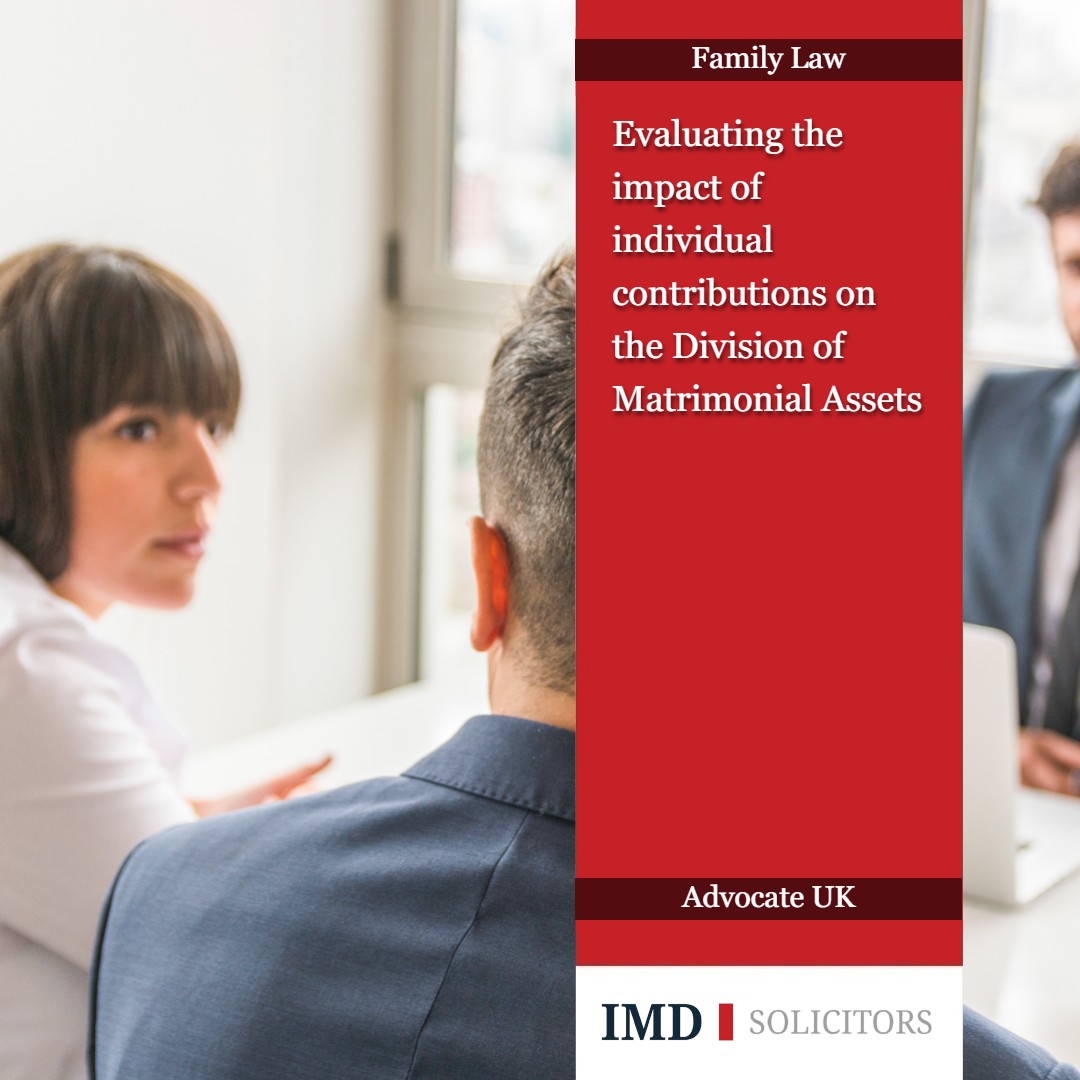
IMD are regularly instructed in matters where specific and unmatched financial contributions are raised as issues in cases where the court is considering which financial orders to follow divorce. Recently, in one such case the couple had been living apart for some time before the husband decided to initiate the divorce process. We represented the wife and one of the husband’s key arguments was that his efforts in paying down the mortgage and making improvements to their family home, since separation, should be reflected in an unequal division of the marital assets.
Nature of Contributions and Matrimonial Assets: Under Section 25 of the Matrimonial Causes Act 1973, the court is required to consider numerous factors, including contributions by each party to the marriage/civil partnership, to ensure a fair outcome in the division of their assets. Authority tends to dictate that, when it comes to contributions, these usually need to be exceptional (in that it would be inequitable to disregard them) to have a significant impact on that division. As a result of that high bar, and generally speaking, the common contributions to the marital assets do not tend to have an impact on their sharing, particularly when it comes to the family home.
In this case, and at the Financial Dispute Resolution hearing, (which can be described as a Judge led settlement hearing), the Judge agreed with the position put forward on our client’s behalf that:
Given the broad discretion under which the court operates when considering applications for financial orders, matters need to be considered in the round and on a case-by-case basis. However, time and expense can be saved by both parties where they are realistic about the real impact that their asserted contributions are going to have on the outcome of proceedings. Broadly speaking, unless they are truly exceptional, they will have a limited impact on that outcome.
At IMD Solicitors LLP our clients have valued our clear, easy to understand and realistic advice. If you are facing a divorce and/or financial order proceedings, do not hesitate to contact the Family Team today.
This article is for general information only and does not constitute legal or professional advice. Please note that the law may have changed since this article was published.